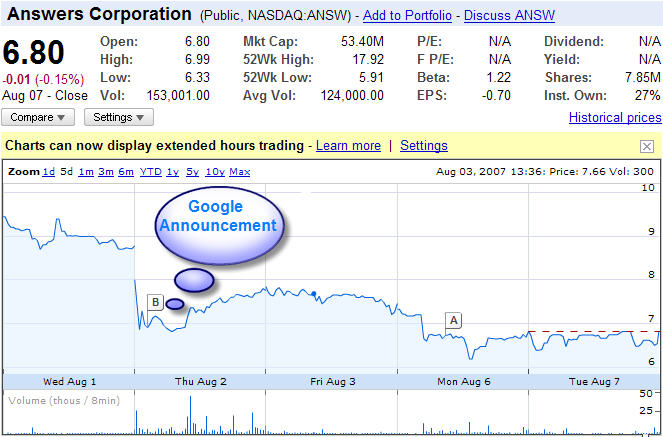Alan Greenspan was recently interviewed on the Daily Show.
Explaining his old job, he stated:
I have been dealing with these big mathematical models forecasting the economy, and I am looking at what is going on in the past few weeks and say, you know if I could figure out a way to determine weather or not people are more fearful, or changing to more euphoric, and I have a third way of figuring out which of the two things were working, I don't need any of this other stuff.
I could forecast the economy better than any way I know. The trouble is that we can't figure that out. Forecasting today is as good or bad as it was 50 years ago. The reason is human nature hasn't changed. We can't improve ourselves.
Economic Trends Are Caused by Emotions
The prices of commodities often change without any underlying change in value, just a change in perceived value. After all, what is money backed by and why did the dollar lose 25%+ of its value over the last few years? If it is supply and demand related, why did we need to sharply increase the supply of currency? Once a trends start heading in one direction, just the creation of the trend (or perception of the trend) causes a following.
Investments are based on risk to reward ratios, and if people are afraid they are less likely to take risks. People like what is familiar, but by the time something has no perceived risk there is little upside potential, and then eventually the bottom falls out of the market, like what happened with real estate recently.
Tracking Real Estate
Paul Kedrosky recently posted about real estate predicting broader market trends, the mortgage market meltdown destroying a town, and using Google trends to predict real estate markets.
Letting Google Share Other's Emotions With You
Google makes communication faster and cheaper, advertising more relevant and trackable, and audience aggregation more efficient. They also create a lot of cool tools that evolve the web which allow publishers to layer value over the top of them. Not only can you use Google to predict real estate trends, but you can use them to
Trends Are Increasingly Fast
There is already a college course on making Facebook applications. Facebook applications are less than a year old, and colleges are typically years behind the market.
With Google's mass storage of usage data, huge reach, analytics and conversion tracking code they can track the changes of sentiment and demand faster than anyone else can. They can buy out competitors before anyone else understands their full value.
Classifying Fear & Euphoria
Just like Google can classify queries as being informational or transactional in nature, how hard would it be for them to
- track searches and classify them as pessimistic or optimistic?
- track searches of people who visit Google Finance often (or any other finance site, given the Google Toolbar) and classify them as pessimistic or optimistic?
- track changes in outlooks from people who are known thought leaders, have old trusted accounts, and/or have spent significantly through Google Checkout?
- track search volume and link it to economic activity?
- assign an economic value to each query based on ad value?
Right there Google is already a better economic predictor than anything the Fed could hope to be, but what happens if Google decides to also buy and sell securities?
How Google Can Influence Markets
Answers.com
A couple years ago Google switched their definitions link partnership from Dictionary.com to Answers.com. Earlier this year Answers.com announced they were buying the competing Dictionary.com, and a Google update caused Answers.com's traffic to plunge.

When Answers.com announced their Google traffic was cut their stock plunged, which indicates two things:
- Answers.com has a weak business model
- Google has leverage to make Answers.com do whatever Google wants
In spite of Answers traffic increasing and a recent stock market rally, their stock is still down quite a bit from its highs. Answers recently did gain a bit of value though, when they announced they renewed their Google ad syndication partnership.
Syndication = Spam?
In the same way that an algorithm adjustment can kill the profitability of a site, so can a new Google business partnership with a competitor, as newspapers are figuring out right now. If syndication is a large part of your business model look for that stream of revenue to dry up soon.
Flawed Self Analysis
We are bad at self analysis, but we tend to like / trust / believe what is familiar. If we let machines know us well enough they will find the holes in our personalities and egos that are easy to exploit for profit.
Personalized search helps highlight what is familiar, and makes us trust Google more by reinforcing our worldviews. Not only can Google bring back things you liked in the past, but they can recommend new stuff, guide your thoughts, and share ads as content.
Predicting the Future With 99%+ Accuracy
Not only can Google update algorithms or add features to stun competitors, but they also could easily see real trends first hand (like cuts in marketing budgets, search related product demand, or organic mentions) and trade securities or derivatives in near real time. They also have a pretty good idea of the types of sites their next filters are going to take out.
What more for predicting market trends if Google buys DoubleClick (a leading online ad server) and become a free international Internet service provider? Cory Doctorow recently covered how Google can go wrong, but until more people think along those lines Google is going to grow to be the single largest economic engine in the world, and the best predictor of micro and macro economic trends.


